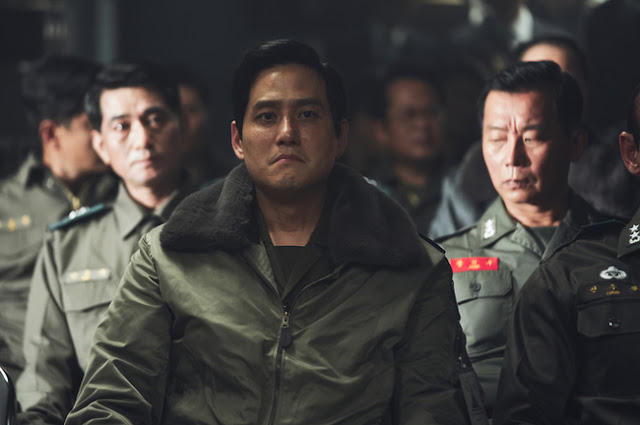August 7, 2024
The current president of South Korea, with the lowest approval rating in the world, is at the center of a conspiracy theory that threatens to destroy the facade only democracy in the country. The president, a former prosecutor, is accused of planning a self-coup to maintain his power and avoid impeachment.
At the heart of the conspiracy are several high-ranking
officials, including the head of the presidential security service, the
commander of the Military Counterintelligence HQ, and the minister of administration
and public security, all of whom graduated from the same high school as the
president. These officials have served in key military positions, including the
commander of the Capital Defense Headquarter, the most important military
position in the event of a military coup.
 |
| Movie still/ Movie, Spring of Seoul |
The president's behavior has been described as unpredictable
and unreliable, and his actions have raised concerns about the stability of the
region. The United States, which has a significant military presence in South
Korea, is watching the situation closely, and there are concerns that the
president may be seeking to gain U.S. approval for his planned coup.
However, the U.S. has made it clear that it is not in favor of such a conspiracy, and the recent Suemi Terry espionage case has shown that the U.S. is monitoring the president's actions closely. The question is whether the U.S. would allow the president to engage in a deliberate armed conflict with North Korea without prior consultation, and use it to launch a pro-junta military coup.
The U.S. military in South Korea has not returned military
operational authority to the South Korean military, and any mobilization of
South Korean military forces for a coup would be the responsibility of the
United States. This may be why the president has taken an unconditional
pro-American stance on regional security, perhaps in preparation for such a
military coup.
If the coup plot succeeds, the United States cannot escape
direct or indirect responsibility for it. The current structure of the
U.S.-South Korea military alliance leaves the U.S. with no excuse, and if a
progressive government is installed in the wake of such a coup, U.S. influence
in South Korea will be drastically reduced, and a pro-Chinese Communist regime in
South Korea could result in the loss of U.S. strategic advantages in the Far
East.
The situation is precarious, and the ball is now in the U.S. court. Will the U.S. allow the president to destroy democracy in South Korea, or will they take action to prevent a coup and protect the country's democratic institutions? The world is watching, and the consequences of inaction could be severe.
